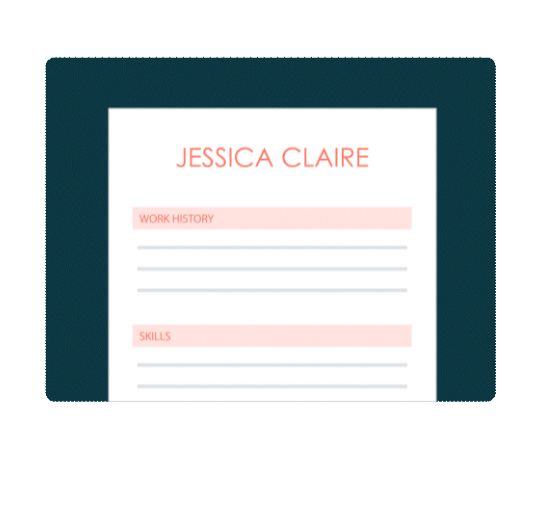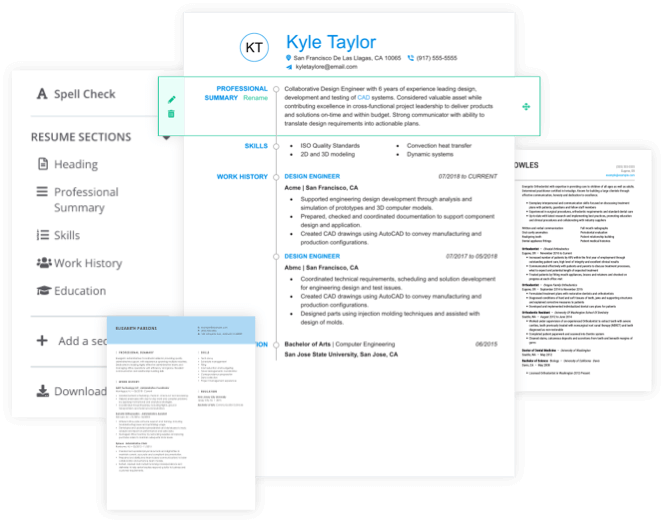![]()
Bank accountants classify and record financial information. In this respect, they perform the same type of duties as other accountants. The difference is that they do not handle multiple clients, just the bank that employs them. The job is generally a full-time one spent in an office environment. Overtime may be required during periods when reports are being compiled, such as at the end of a quarter.
Bank accountants may hold titles such as accountant I, accountant II, staff accountant, or senior accountant. Moving up the ladder typically requires many years of experience and an advanced degree. The field of accounting as a whole is expected to see a 10 percent rise in employment between 2016 and 2026.
If you are having writers block, our resume examples can help. Choose from hundreds of job titles to find the right example for your needs.
Want to boost your resume? Your Jobhero subscription comes with a complimentary cover letter builder. Once you choose a cover letter template, the builder will suggest job-specific skills and prewritten entries, allowing you to save multiple letters for various applications fast.


As they go about helping their employer keep track of activities, bank accountants must perform a variety of tasks. Our analysis of job postings shows these responsibilities to be common for bank accountants:
Every dollar going in and out of the bank (physically or electronically) needs to be accounted for. Bank accountants oversee daily transactions in order to be certain that books balance at the end of the day, meaning there is a credit for every debit and vice versa. They also keep tabs on cash on hand to ensure the bank has a sufficient amount to handle daily customer requests.
Whether a bank teller gave out too much money or a member of the accounting team typed a number incorrectly, bank accountants play detective to figure out what went wrong. They then must go through procedures to rectify errors, including adjusting accounting entries.
Bank Accountants are often the ones who spot money laundering and other illegal actions. As they monitor records, suspicious transactions or unusual account activity may raise red flags, and bank accountants report their suspicions to higher authorities.
A bank's classifications, accounting practices, and reporting need to adhere to proper standards. Bank accountants ensure compliance with government regulations and may provide information to external auditors when they perform reviews. Bank accountants also may be responsible for tax preparation.
At different times of the year, bank accountants present formal documentation of the institution's activities over a certain time period. This information helps executives with decisions by giving them a clear picture of where the bank currently stands. Other parties, such as shareholders or the public, may also be interested in these results.
Without a doubt, bank accountants need to possess exceptional math skills since handling numerical data is required daily. They also need to pay close attention to detail to ensure errors aren’t being made. Other good qualities for bank accountants to possess include:
Money, of course, is the main item with which bank accountants are concerned. If you plan on becoming a bank accountant, you’re also likely to encounter the following:
General ledger – The bank’s main accounting record
Transactions – Individual monetary exchanges that together make up the bank’s activity
Accounting software – Computer software specifically designed for recording and handling financial information
Financial documents – Balance sheets, income statements, cash flow statements, statements of retained earnings, and other reports of financial information prepared for activity during a certain length of time, such as daily or monthly
Call report – A quarterly report of the financial institution’s condition that insured banks must provide to the Federal Deposit Insurance Corp.
Vault – Secured place in the bank where cash is stored
Job postings for bank accountants generally call for candidates with at least a bachelor’s degree in accounting, finance, or a related field. Employers oftentimes prefer to hire people who have studied accounting at the graduate level and have received an MBA. Bank accountants also frequently hold a Certified Public Accountant license. Specific requirements to become a CPA vary by state, but all involve a combination of education, experience, and examination.
The Bureau of Labor Statistics shows that bank accountants, under the title of “Accountants and Auditors,” earn a median pay of $68,150 annually.
Try our resume builder today

Bank accountants provide valuable services for their employers and the customers who trust their financial institutions. Do you have what it takes to handle such responsibilities? The following groups and books can help you with your decision:
Since 1887, the American Institute of Certified Public Accountants has been helping members advance their careers and stay on top of industry trends. The website offers special information for women and minorities seeking to make a name for themselves in the field of accounting.
The Association to Advance Collegiate Schools of Business is a goto place for questions pertaining to the education and training needed to become a bank accountant.
From the latest regulatory changes to advances in cybersecurity, this group's website has a plethora of topics of interest to bank accountants and others who work for financial institutions.
This book offers a breakdown of the various job possibilities for people interested in accounting. Of particular interest are the interviews with people holding the actual positions.
Get a firm grasp of the modern world of banking with the ninth edition of this textbook.